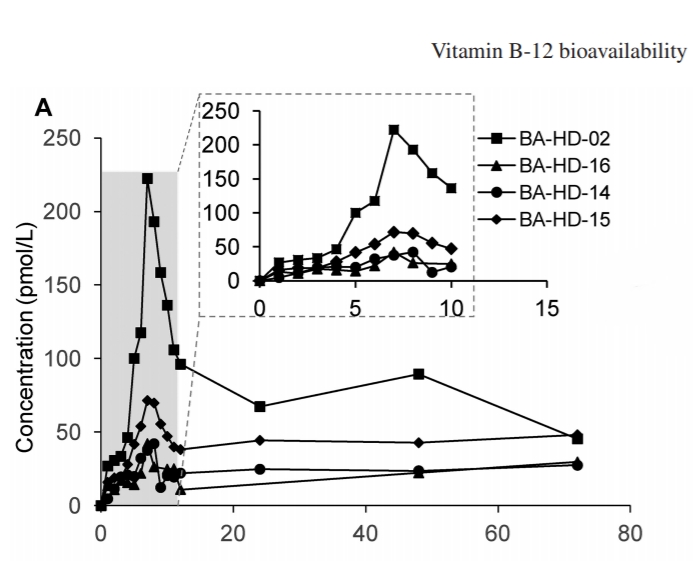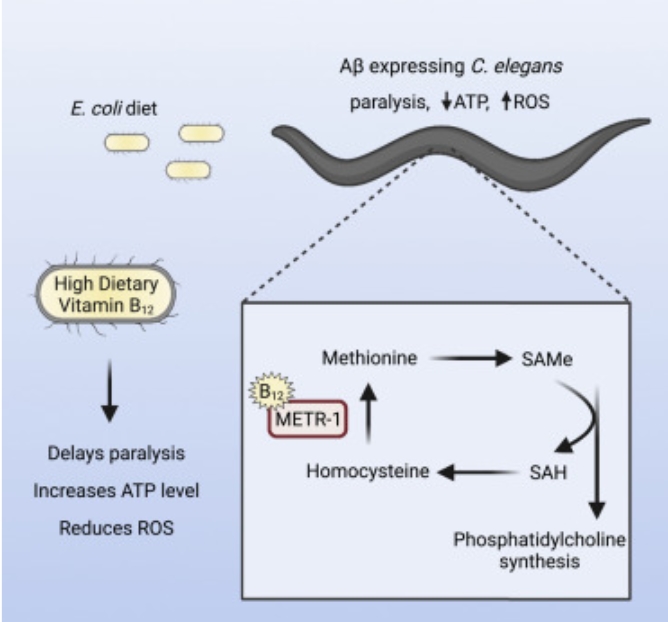Measuring vitamin B-12 bioavailability with [13C]-cyanocobalamin in humans
Sarita Devi, The American Journal of Clinical Nutrition, Volume 112, Issue 6, December 2020, Pages 1504–1515,
Background
Vitamin B-12 deficiency is widespread in many parts of the world, affecting all age groups and increasing with age. It is primarily due to a low intake of animal source foods or malabsorption. The measurement of bioavailability of vitamin B-12 is etiologically important in deficiency but is limited due to the use of radioactive isotopes like [57Co]- or [14C]-cyanocobalamin.
Objectives
The aim of this study was to measure the bioavailability of [13C]-cyanocobalamin in humans and to assess the effect of parenteral replenishment of vitamin B-12 on the bioavailability.
Methods
We synthesized a stable isotope-labeled vitamin B-12, [13C]-cyanocobalamin, using Salmonella enterica by providing [13C2]-ethanolamine as a sole carbon source. After purification and mass spectrometry–based characterization, its oral bioavailability was measured in the fasted state with high and low oral doses, before and after parenteral replenishment of vitamin B-12 stores, from the kinetics of its plasma appearance in a 2-compartment model.
Results
[13C]-cyanocobalamin was completely decyanated to [13C]-methylcobalamin describing metabolic utilization, and its plasma appearance showed early and late absorption phases. At a low dose of 2.3 µg, the mean bioavailability was 46.2 ± 12.8 (%, mean ± SD, n = 11). At a higher dose of 18.3 µg, the mean bioavailability was 7.6 ± 1.7 (%, mean ± SD, n = 4). Parenteral replenishment of the vitamin B-12 store in deficient individuals prior to the measurement resulted in a 1.9-fold increase in bioavailability.
Conclusions
Vitamin B-12 bioavailability is dose dependent and at a low dose that approximates the normal daily requirement (46%). The stable isotope method described here could be used to define the etiology of deficiency and to inform the dietary requirement in different physiologic states as well as the dose required for supplementation and food fortification















